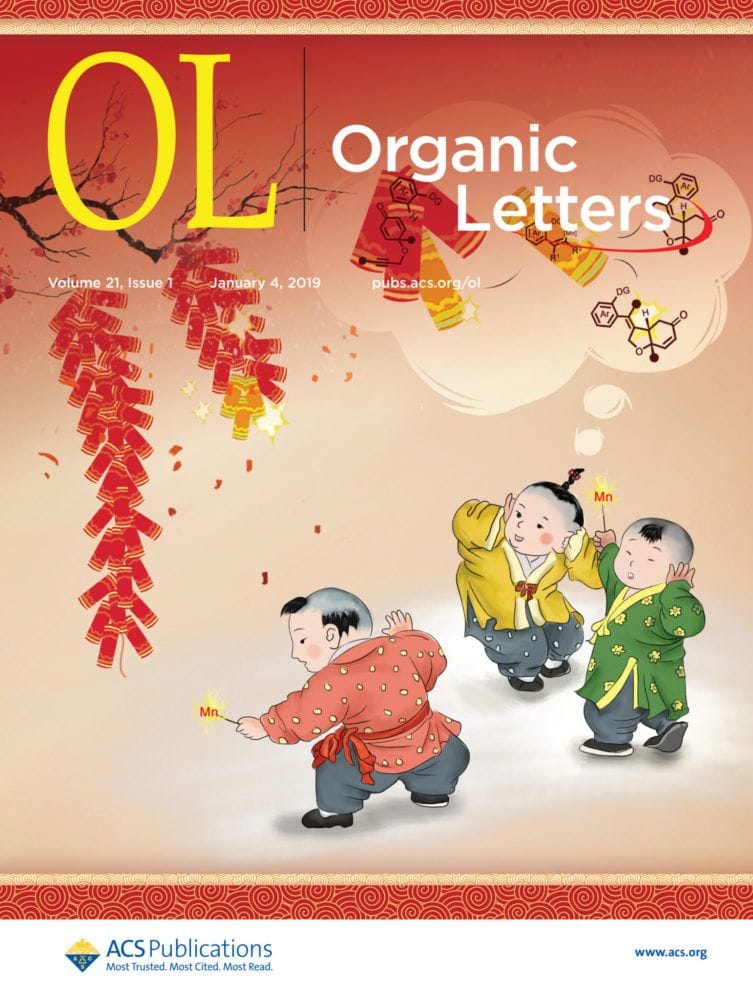Co-sponsored by the ACS Division of Organic Chemistry and Organic Letters, this annual award recognizes authors of an outstanding letter published in the journal in the previous calendar year. The letter is selected based on its creativity and impact in the field. This year the award goes to the research group of Sidney Wilkerson-Hill at […]

Co-sponsored by the ACS Division of Organic Chemistry and Organic Letters, this annual award recognizes authors of an outstanding letter published in the journal in the previous calendar year. The letter is selected based on its creativity and impact in the field. This year the award goes to the research group of Sidney Wilkerson-Hill at University of North Carolina, Chapel Hill.
Meet the Recipients
The Wilkerson-Hill group is recognized this year for its article Programmed Sequential Additions to Halogenated Mucononitriles, which describes research using bis(ketene) linchpin reagents to build out dimeric compounds, providing a fundamentally new way of thinking about how to construct dimeric compounds as monomers for material science studies with potential extended impacts on other chemistry such as cycloaddition reactions.

Learn more about the group by reading the highlights from an interview with Sidney Wilkerson-Hill.
What does it mean to you to be the recipient of this award?
A lot! It feels great to see the team’s hard work be recognized with a prestigious award. It is also reaffirming. The award motivates us to further investigate the reactivity of protected bisketenes!
What prompted you to study this field of chemistry?
Organic chemistry provides the tools to study chemical biology, develop new materials, and discover new drugs. We hope to impact all of these fields by developing new reagents and reactions. In our toolbox, I would say we have a lot of Phillips heads screwdrivers at our disposal–from time to time we need a flathead screwdriver.
What are some of the important applications that you are working on that will benefit society?
We are investigating the potential of these molecules to couple complex biomolecules. We are also investigating their ability to function as privileged monomers to build materials with beneficial properties.
Tell us about your research philosophy.
Fundamental research. We take on projects because they are interesting and lead to deep questions, and sometimes the applications are not immediately apparent. We also see value in reagent development and commercialization of compounds because this empowers others to apply new chemistry to complex problems.
What’s next in your research?
A subset of projects in our research are to build dimeric natural products using these reagents. Most reactions involve homocoupling or some cross-coupling of two units. We were curious about an alternative approach, one where the C–C bond that connects the two monomeric units was already in place.
Is there anything else that you would like to share?
I want to take this space to thank my research group! I am lucky to work with a phenomenal group of students that continuously push me to become a better PI and mentor.
